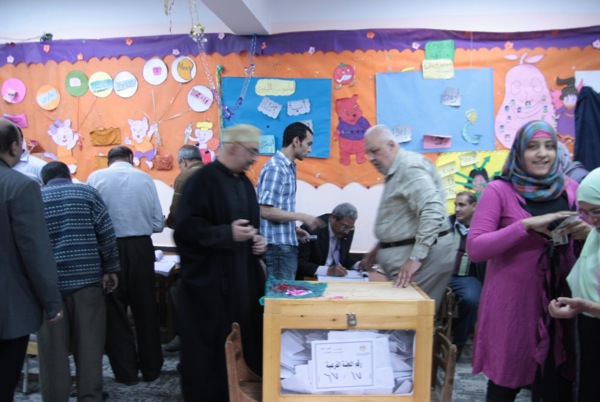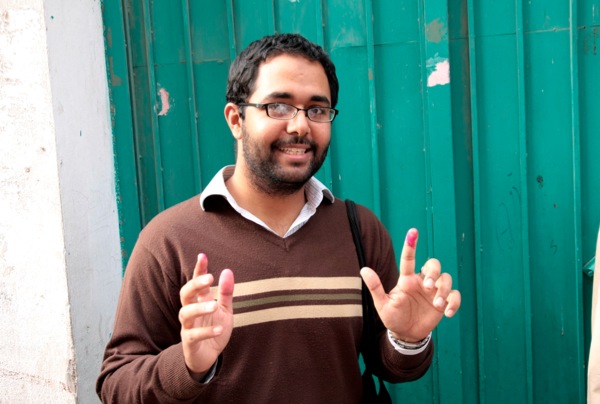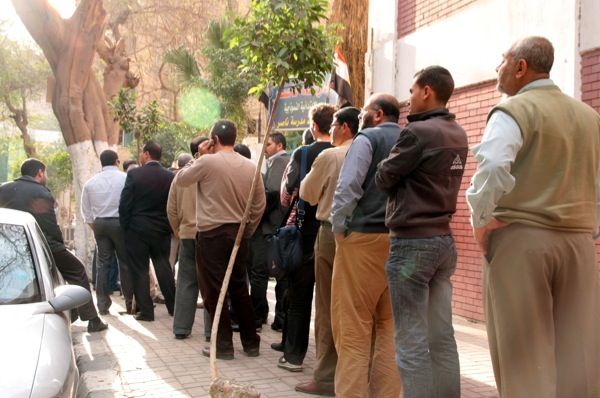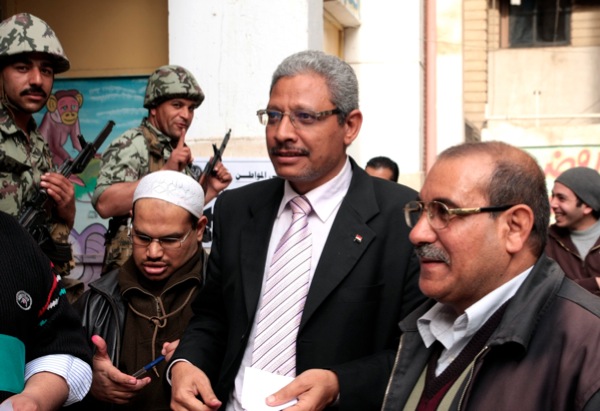On 19 March Egyptians voted on a package of constitutional amendments. There was a sense of exuberance on the streets, with total strangers smiling and asking each other how they had voted – ‘yes’ or ‘no.’ For many, it was their first experience in participatory democracy; for others, it was the first time they bothered to vote in decades.
CAIRO — In an elementary school classroom decorated with colorful children’s drawings and guarded by two soldiers wearing camouflage and helmets, a gray-mustached Egyptian man wearing a galabiyeh and embroidered prayer cap voted for the first time in 30 years. “Because this time it means something,” he said, as he examined the pink indelible ink drying on his finger. Men and women queued up patiently – and separately – at that polling station in an elementary school in Dokki, an upscale residential area in downtown Cairo, as they waited their turn to vote ‘yes’ or ‘no’ to a package of constitutional amendments. Many emerged with exuberant smiles on their faces, waving their pink fingers to indicate they had voted and flashing the ‘V’ for Victory sign.
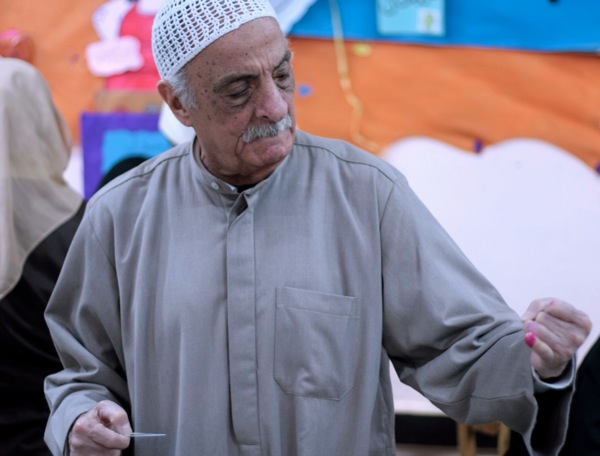
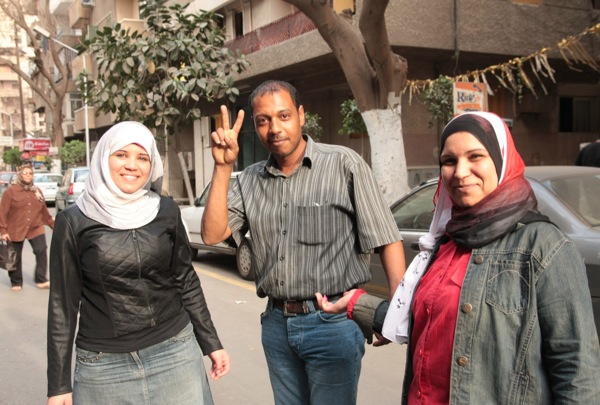
After Mohamed (known on Twitter as @travellerw) cast his ballot, he asked the young state prosecutor responsible for supervising the voting at that location if I could go in to take some photos and talk to people. When we stood in the schoolyard outside the classroom, where Mohamed also voted, a lot of people approached us to discuss their votes and their decisions. A few said they had read up on the issues via the referendum website.
Out on the street, one man called out to Mohamed, ‘Did you vote “yes” or “no”?’ Mohamed answered, ‘I voted “no.”‘ The man gave him a thumbs-up of approval. Another man told Mohamed that he had voted “no,” “because they cannot fool us that easily.” Like many who voted “no,” the man seemed to be expressing a common feeling that the referendum was far too soon after the revolution, that people had not been given enough time to learn about the issues, which might mean that those who had drafted the amendments and those who supported them had ulterior motives.
One distinguished-looking man, a white-haired engineer wearing a suit jacket, said he had voted ‘yes’ based on only one of the proposed amendments – article 77, which would establish presidential terms of four years and limit office holders to to two terms, rather than the current unlimited terms of six years in office. Two owners of small businesses said they had voted ‘yes,’ even though they did not like many of the proposed amendments, because they wanted stability in Egypt. Change was too slow for them: one said he had not been able to pay his employees’ salaries for three months; and another said he simply was not making a living these days.
People argued animatedly, but courteously and with smiles. They were very engaged by the experience of participatory democracy. The news that the governor of Cairo was kicked out of a Cairo polling station because he insisted on going to the front of the queue instead of waiting his turn spread via Twitter and text messages, eliciting a lot of gleeful comments. There were no jokes at all over the news that thugs attacked Mohamed ElBaradei at a polling station in a poor district of northern Cairo, throwing stones at the Nobel laureate and destroying his car.
Later, when we met up with Mohamed’s friend Inji, she announced anxiously that her cousin Ragia Omran, an attorney and well-known political activist, had just been arrested by the army, together with her younger sister, while they were observing the voting at another polling station. Dinner was punctuated with phone calls about Ragia from various friends and activists.
There is a lot of anxiety amongst the Cairo-based activists about the army – and with good reason: Over the past weeks they have played a duplicitous game, saying on the one hand that they would never shoot on pro-democracy protesters; and then, after Mubarak resigned, arresting, beating and brutally torturing many of them. According to one account, soldiers subjected detained female activists to virginity tests and threatened to charge non-virgins with prostitution.
On the other hand, someone has to run the country during the transition period leading up to elections. So there is an uneasy sense that while the army cannot be trusted, there is no choice but for them to remain in charge until elections are held.
As we walked to the car after dinner, we passed another school where the counting of votes had commenced. By the time we arrived home, just after the midnight curfew began, the army had released Ragia Omran and her sister. They were unharmed. Meanwhile, the indelible pink ink had already faded from Mohamed’s finger.
If you enjoyed this article and would like to make a payment toward reader-sustained freelance journalism, please click here. You will be taken to my old blog, where I have cross-posted this article. Scroll to the bottom of the post and click on the yellow ‘donate’ button.


